On 16 October 2025, the Centre for ASEAN Studies, Khon Kaen University (KKU), and the Center for Research on Plurality in the Mekong Region (CERP), KKU, in collaboration with the Department of Mekong Studies, Faculty of Humanities and Social Sciences, KKU, organized the “Academic Seminar on Mekong Studies” and launched the book Intertextuality in the Mekong Subregion (สหบทในอนุภาคลุ่มน้ำโขง). The event was held at Meeting Room 3218, HS 03 Building, Faculty of Humanities and Social Sciences, Khon Kaen University.
The seminar attracted significant interest from faculty members, students, and the general public. The event featured presentations and exchanges of perspectives from academic experts in various fields, reflecting the cultural diversity and socio-economic dynamics within the Mekong Subregion.
The seminar was divided into two sessions:
Session 1: Moderated by Asst. Prof. Dr. Jaggapan Cadchumsang Speakers included:
- Asst. Prof. Dr. Keeratiporn Jutaviriya on the topic: Thai Y Series Fan Culture in the Mekong Subregion
- Asst. Prof. Dr. Piyaporn Punkasirikul on the topic: “Almost Everything Can Be a Lucky Charm in Thailand”: The Commodification of Luck in Online Promotional Texts of Thai Businesses
- Dr. Rutchanee Piyathamrongchai on the topic: Japanization, Its Impacts on Thai Food Culture, and Food Culture Hybridization: A Case Study of Japanese-Isan Cuisine in Khon Kaen Province, Thailand
Session 2: Moderated by Bhirawit Satthamnuwong Speakers included:
- Assoc. Prof. Dr. Thananan Boonwanna on the topic: The Hoang Sa Islands in Chau Ban Trieu Nguyen (1802 – 1945): A Preliminary Study
- Dr. Kaowta Chantranuson on the topic: Ecological Consciousness of the Mekong Basin Composer: Pongsak Chantharukha
- Dr. Kantaphong Chitkla on the topic: Analyzing French Cultural Legacy in Ho Chi Minh City: A Review of French-Derived Loanwords in Vietnamese Language
The discussions in each presentation highlighted “intertextuality”—the connection, exchange, and merging of cultural, social, and economic narratives among the people in the region. These topics spanned various areas, including fan culture, food culture, art, music, linguistic heritage, and foreign influence.
This event served not only as an academic platform for knowledge exchange among the Mekong countries but also as an opportunity to open new perspectives on the region’s contemporary culture and foster academic cooperation among researchers in the Mekong region.
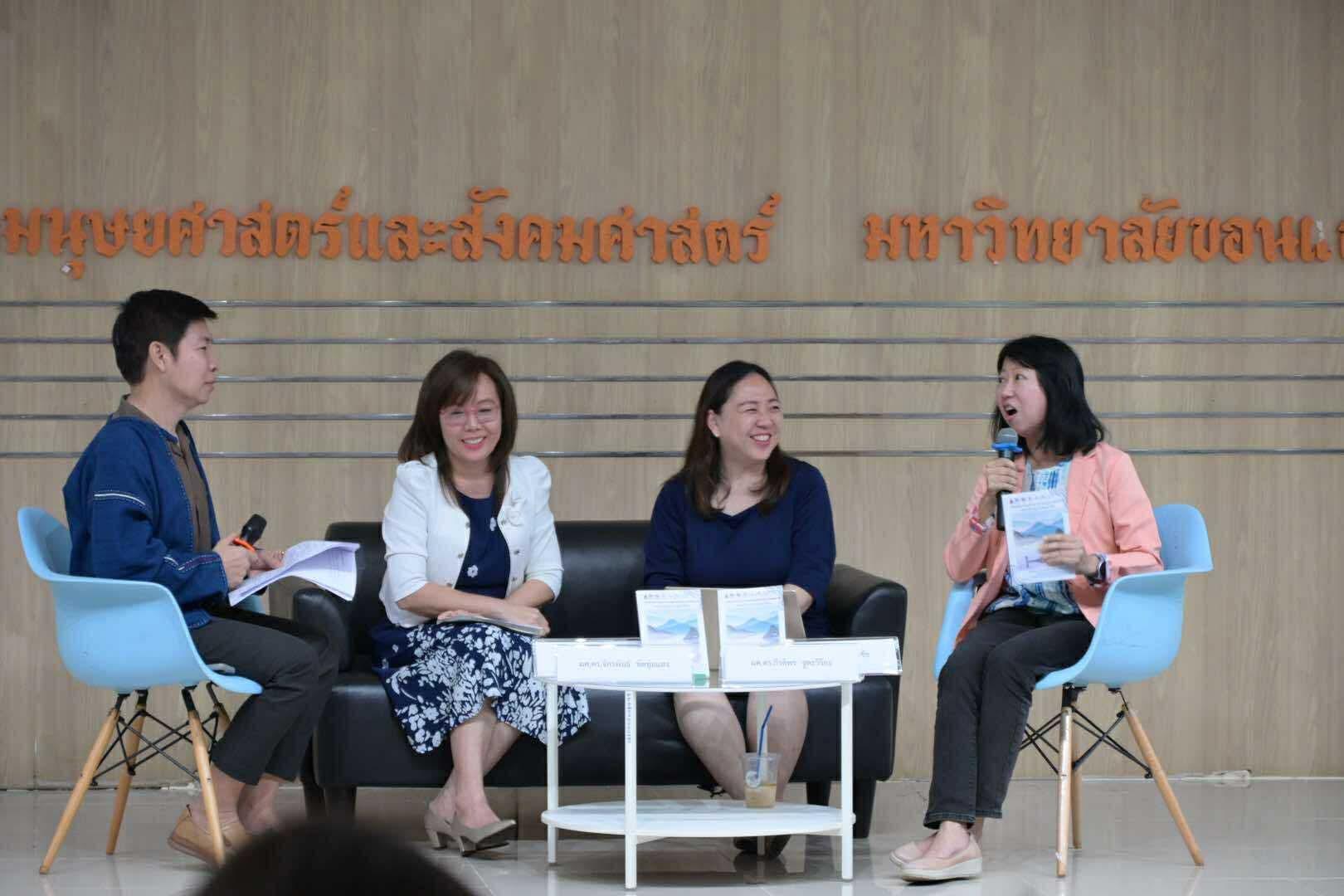
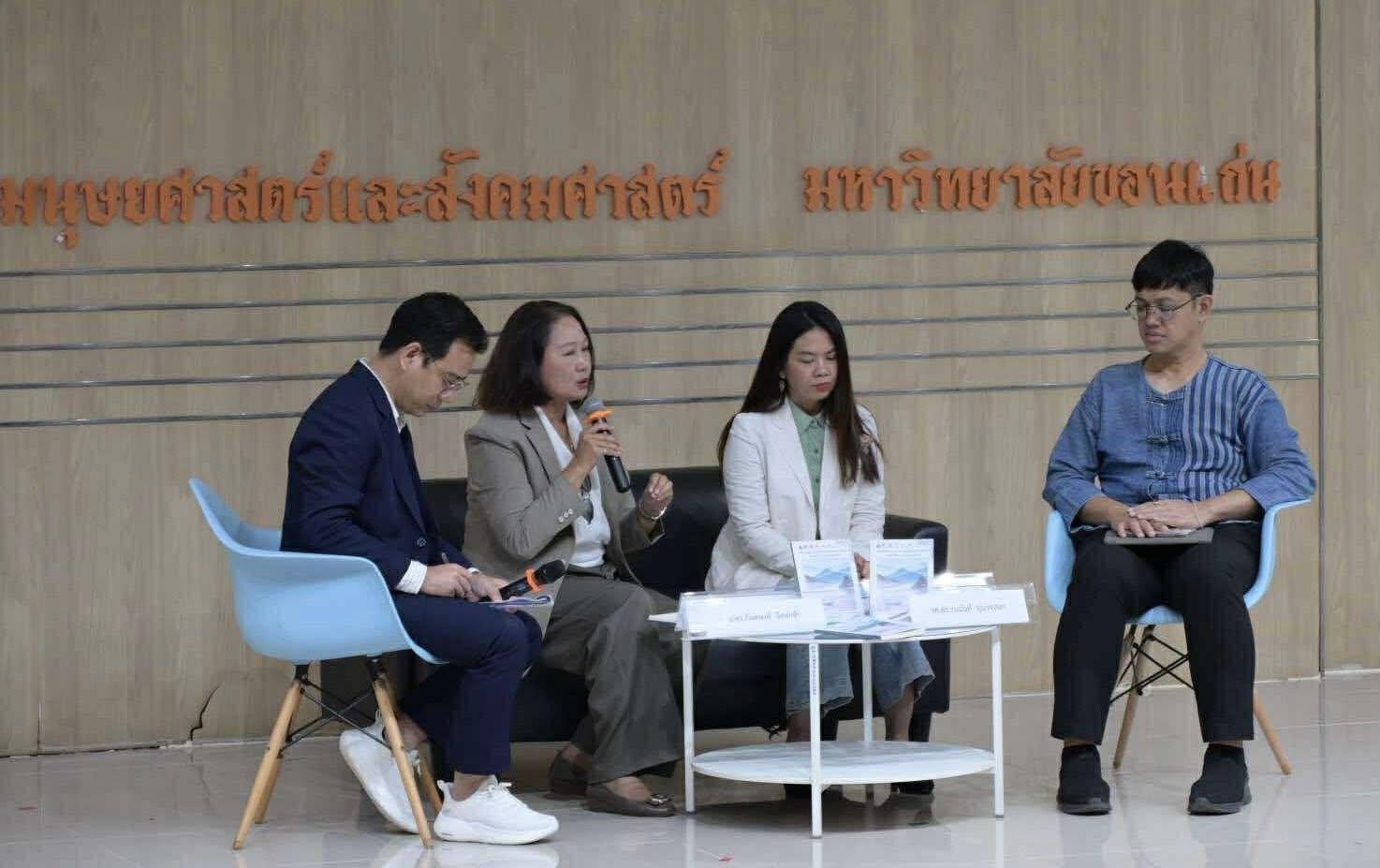
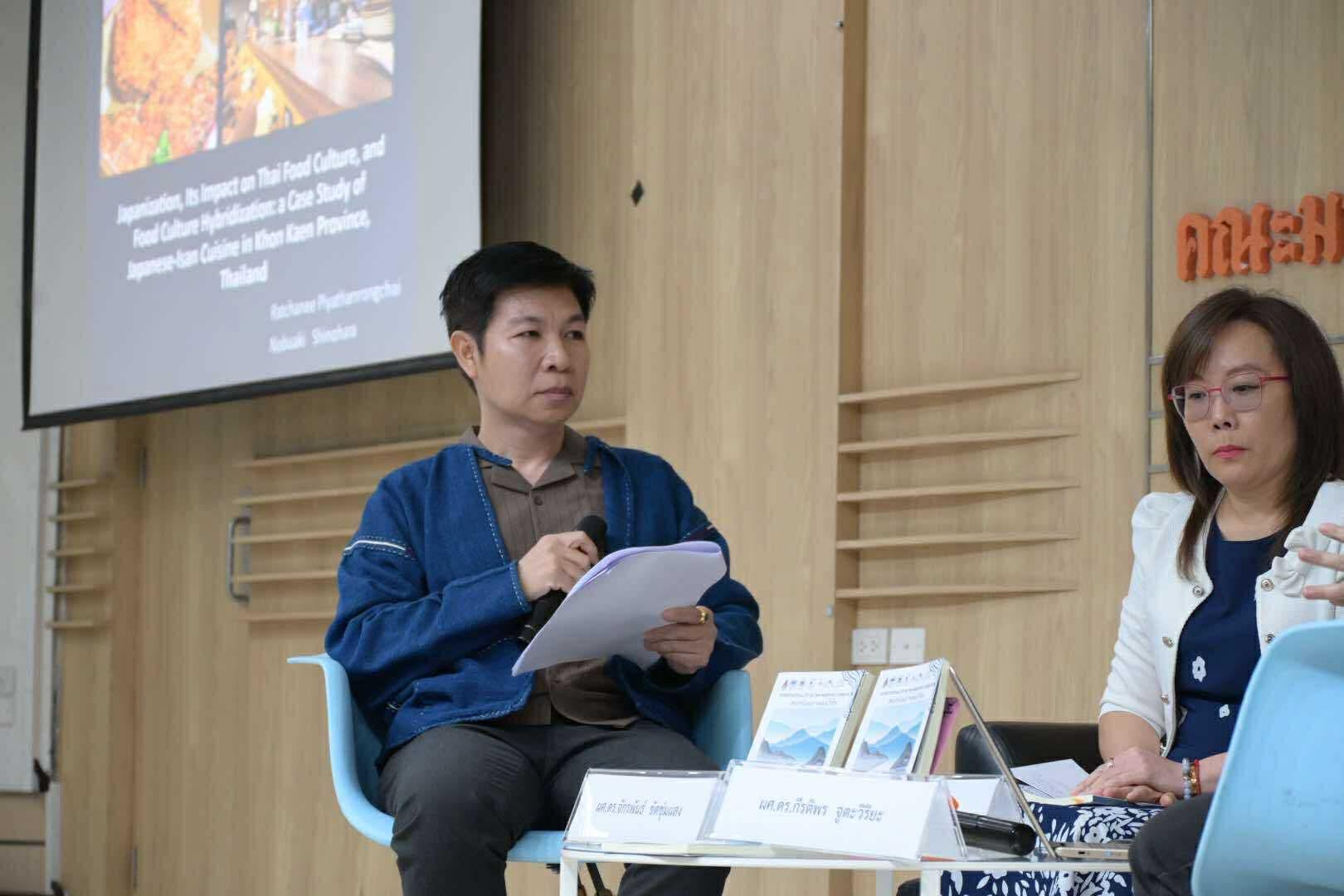
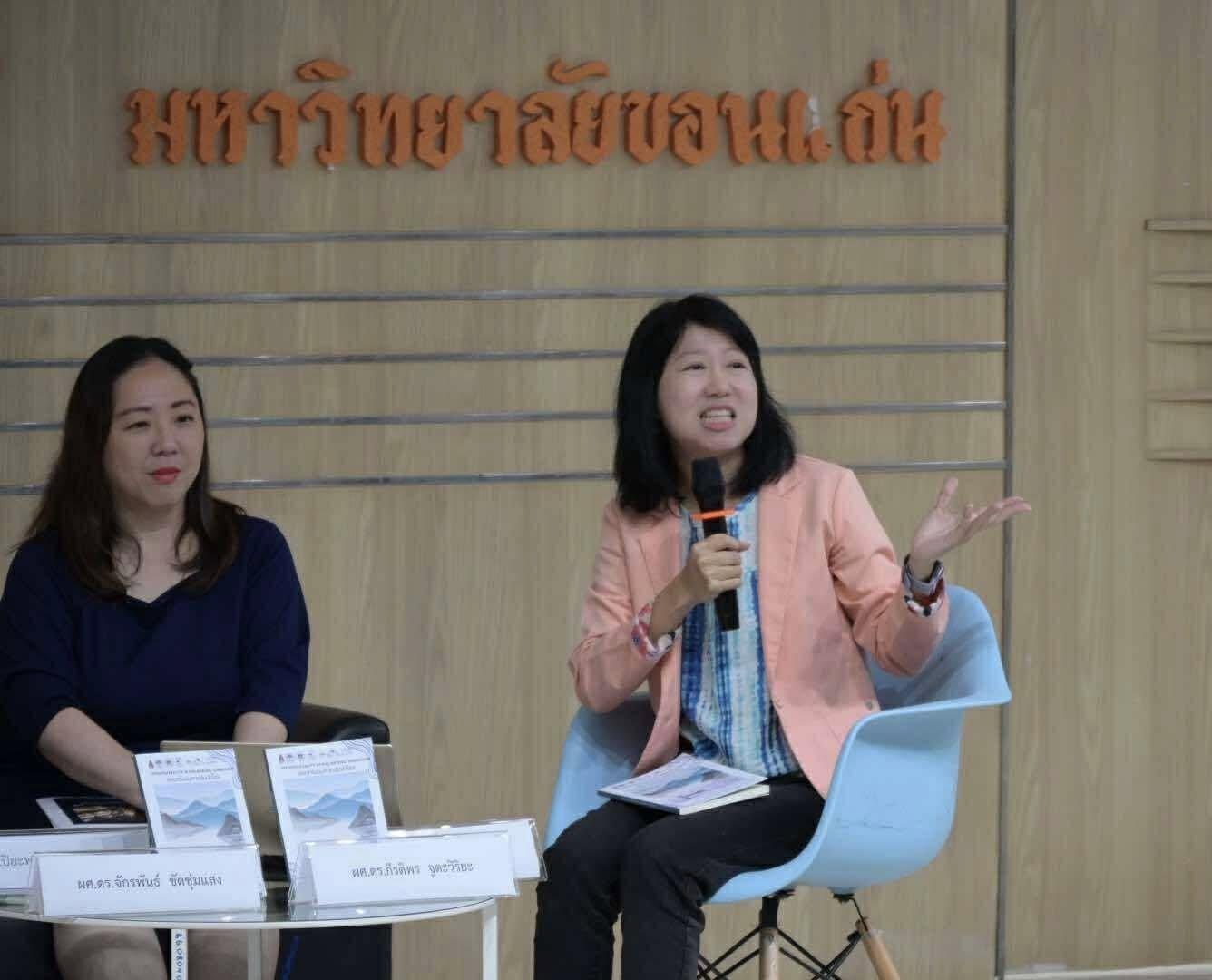
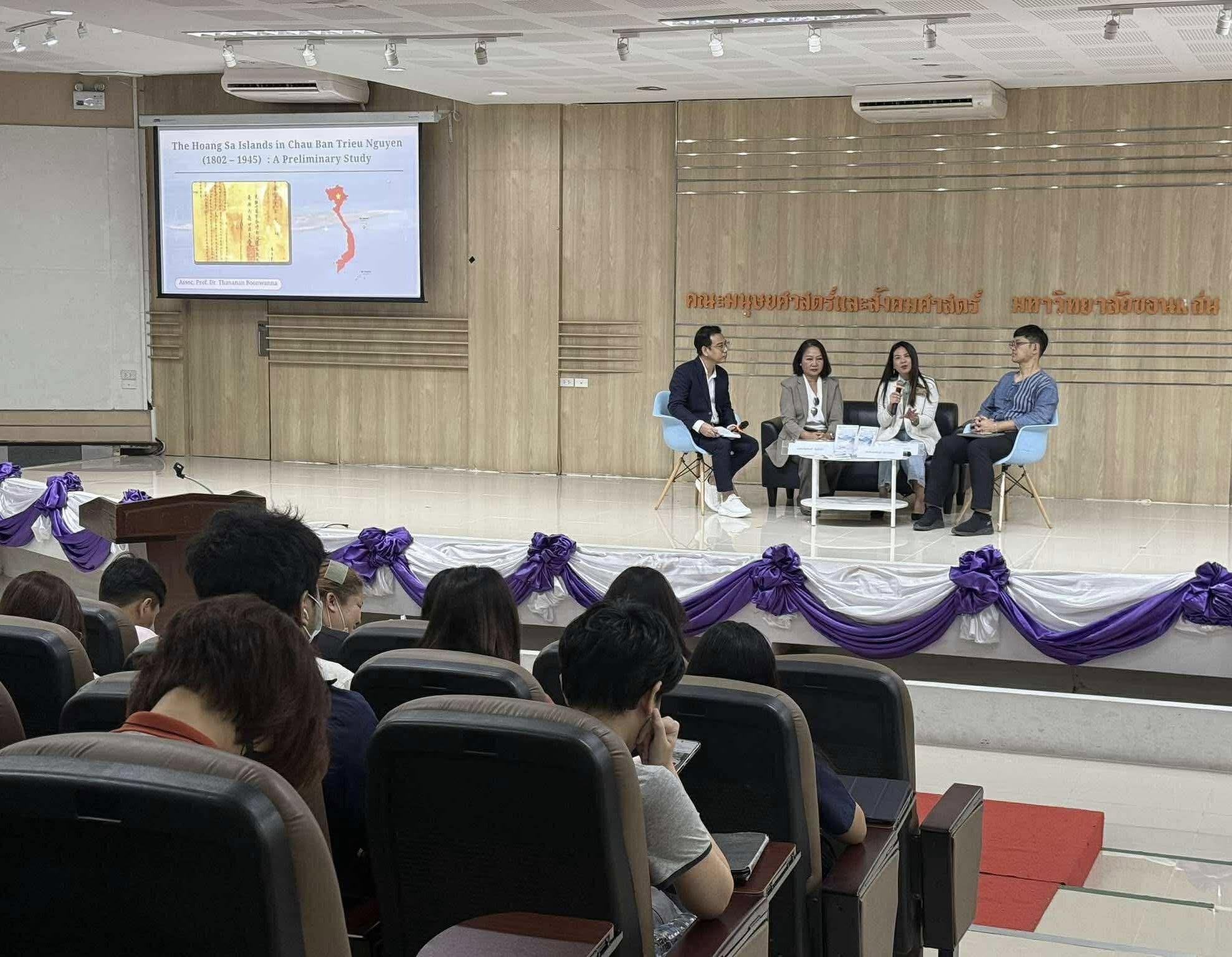
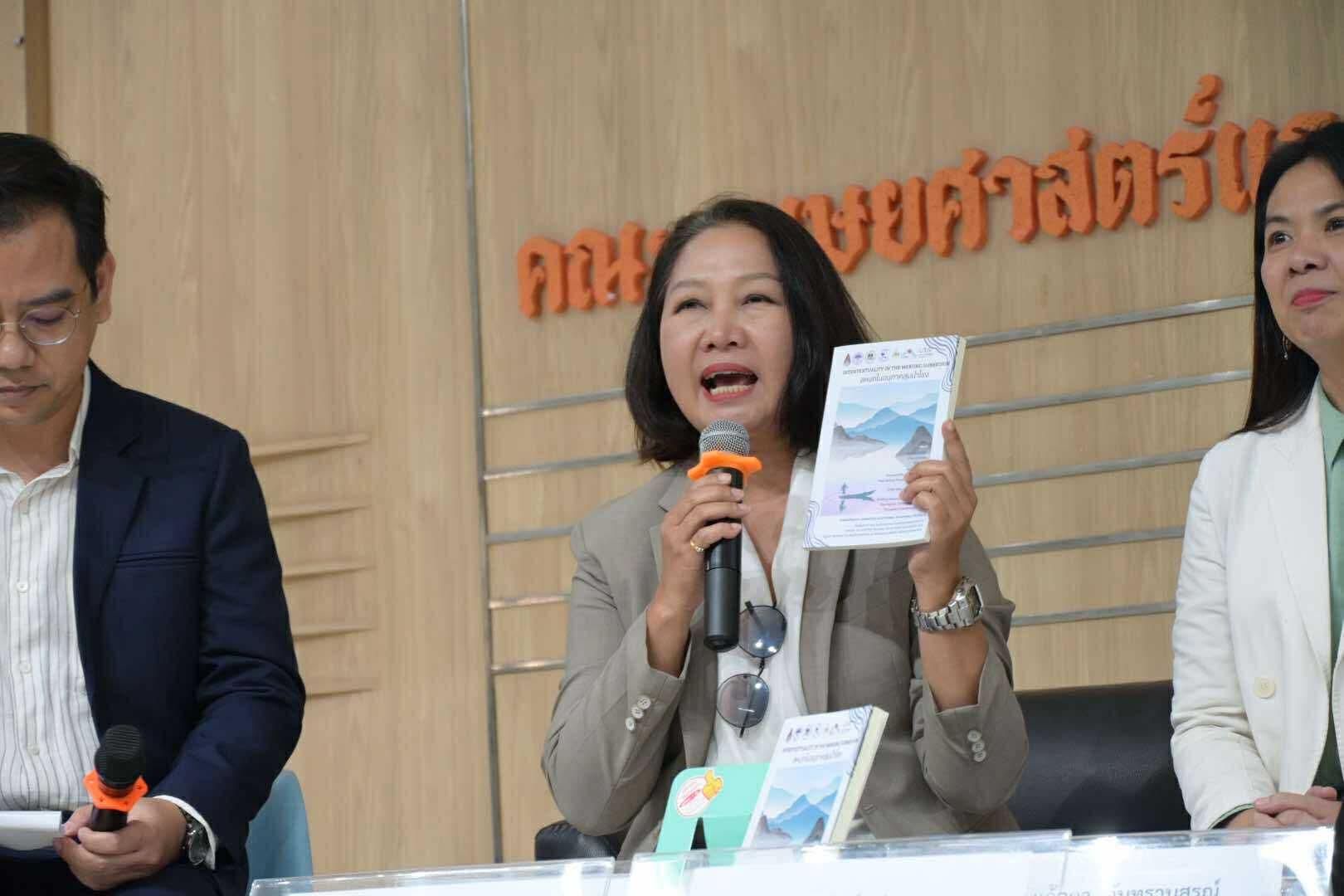
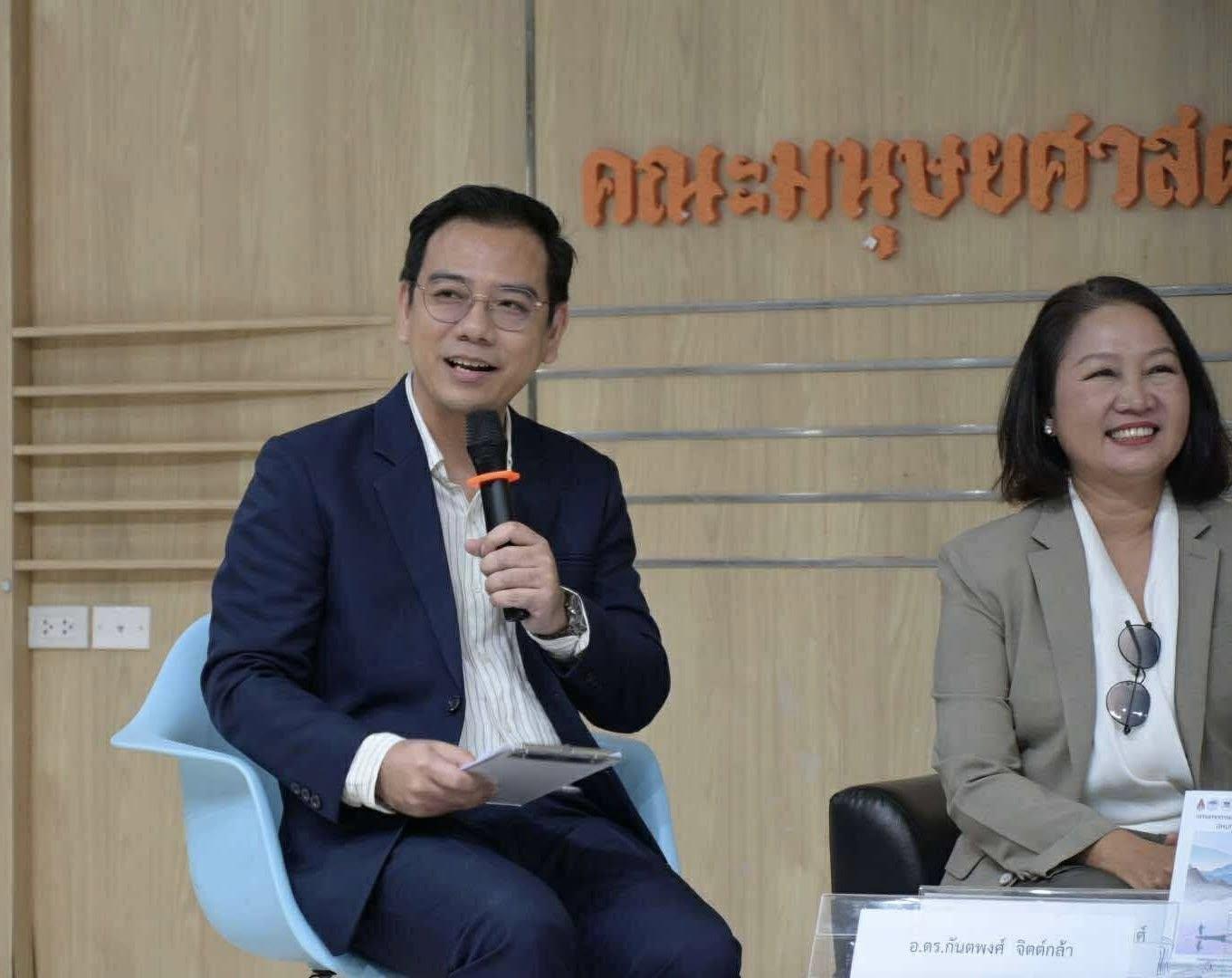
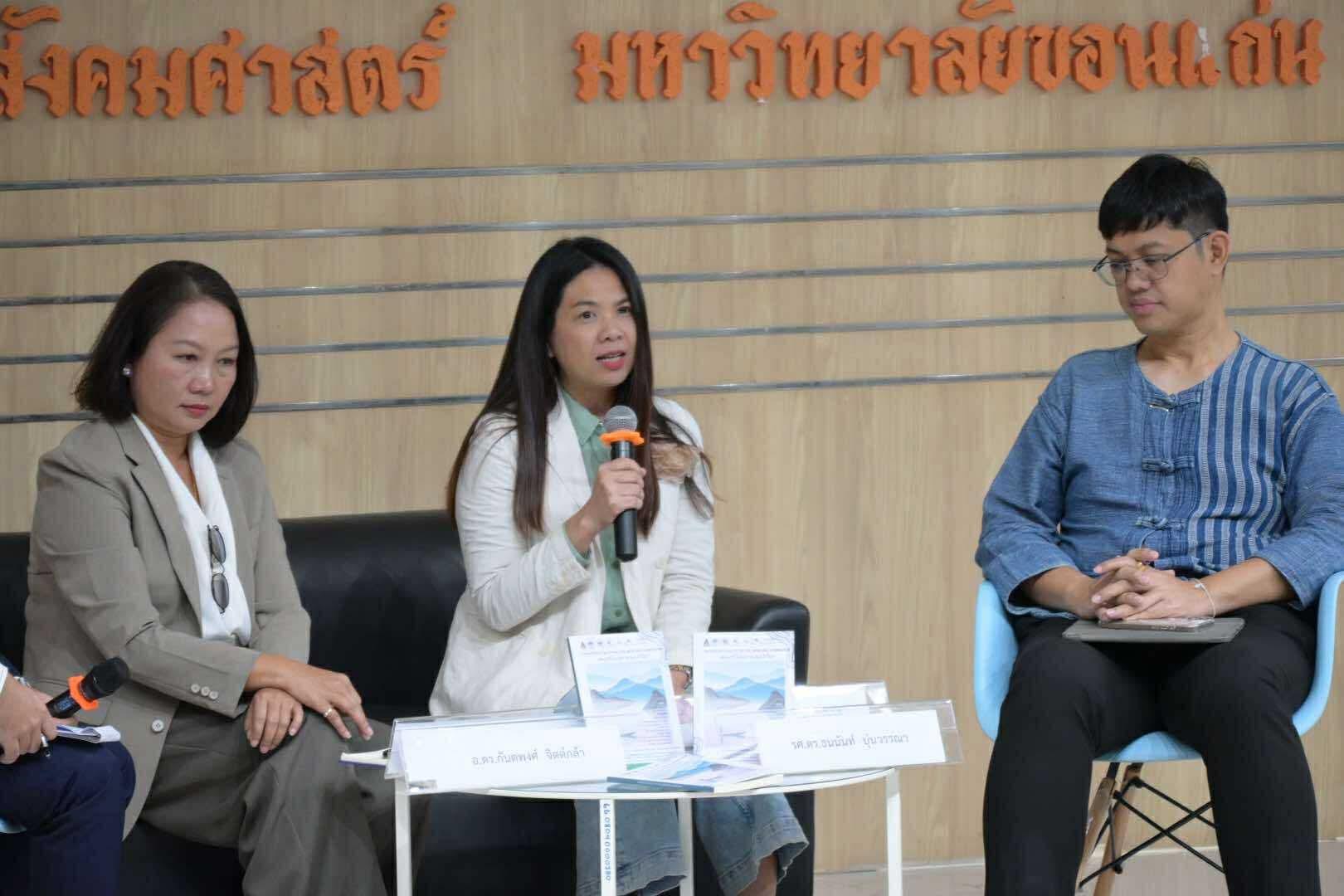
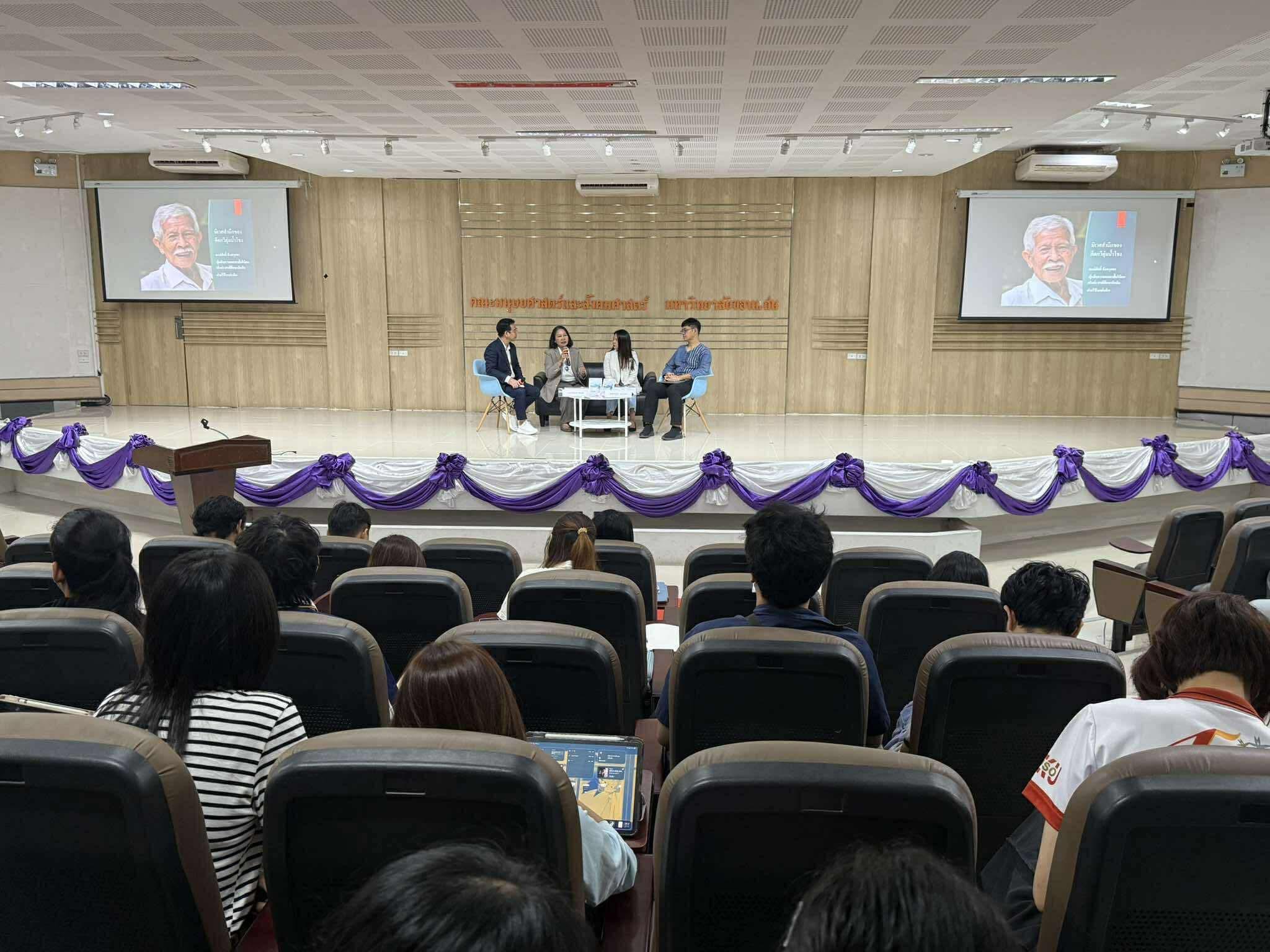
News/Photos: Center for ASEAN Studies, KKU








